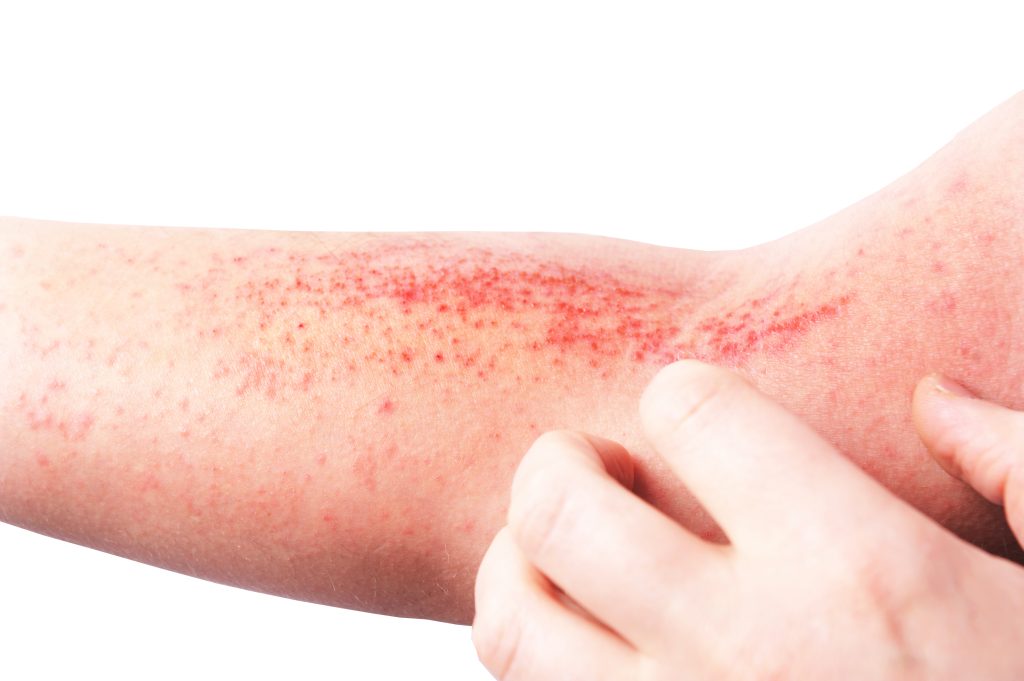New practice parameters from the Joint Task Force for Practice Parameter) recommend the use of topical corticosteroids or topical calcineurin inhibitors in patients with uncontrolled atopic dermatitis (AD) despite moisturizer use.
The Joint Task Force is a partnership between the American College of Allergy, Asthma, and Immunology (ACAAI) and the American Academy of Allergy, Asthma and Immunology.
The new AD guidelines also:
• Highlight the safety of the topical calcineurin inhibitors with typical usage once or twice daily.
• Recommend proactive therapy with topical corticosteroids or topical calcineurin inhibitors for patients with a relapsing course of AD.
• Urge consideration for once-daily dosing of topical medications.
• Recommend dupilumab for patients 6 months of age or older with moderate-severe AD refractory, intolerant, or unable to use mid-potency topical treatment, or tralokinumab for similar patients ages 12 years and older.
• Suggest against elimination diets for AD.
• Suggest the usage of crisaborole 2% ointment for mild to moderate atopic dermatitis.
• Suggest against the use of topical antibiotics for AD alone with no infection.
• Suggest bleach baths for AD patients with moderate to severe disease as an additive therapy, but suggest against bleach bath use for mild AD.
• Urge consideration of allergen immunotherapy for moderate to severe AD.
• Suggest use of oral JAK inhibitors after careful consideration of risks and benefits in adults and adolescents with moderate-severe AD refractory, intolerant, or unable to use mid to high potency topical treatment and biologics.
• Suggest against immunosuppressant medications such as baricitinib (a JAK inhibitor), azathioprine, methotrexate, and, mycophenylate mofetil
• Suggest consideration of cyclosporin in adults and adolescents with moderate-severe AD refractory, intolerant, or unable to use mid to high-potency topical treatment and biologics.
• Suggest against the use of systemic corticosteroids for AD.
“The 2023 JTFPP atopic dermatitis guideline represents an advancement in trustworthy allergy guidelines,” says allergist Derek Chu, MD, PhD, in a news release. “It is distinguished from other guidelines through systematic reviews of the evidence with multidisciplinary panelist engagement, adherence to GRADE – a rigorous guideline development process, as well as the involvement of the patient and caregiver voice from start to finish. Clear translation of evidence to clinically actionable and contextual recommendations, and novel approaches to facilitate knowledge translation were paramount. The guidelines emphasize, in addition to standards of trustworthiness, the third principle of evidence-based medicine: that evidence alone is never enough; and that patient values and preferences are crucial to arriving at optimal recommendations. The new recommendations also reflect the evolution of diversity, equity, and inclusion in approaching diagnosis and management of this condition.”
The practice parameters appear in Annals of Allergy, Asthma & Immunology.
Stay tuned for more coverage of these practice-enhancing guidelines in a future issue of The Derm Digest.


